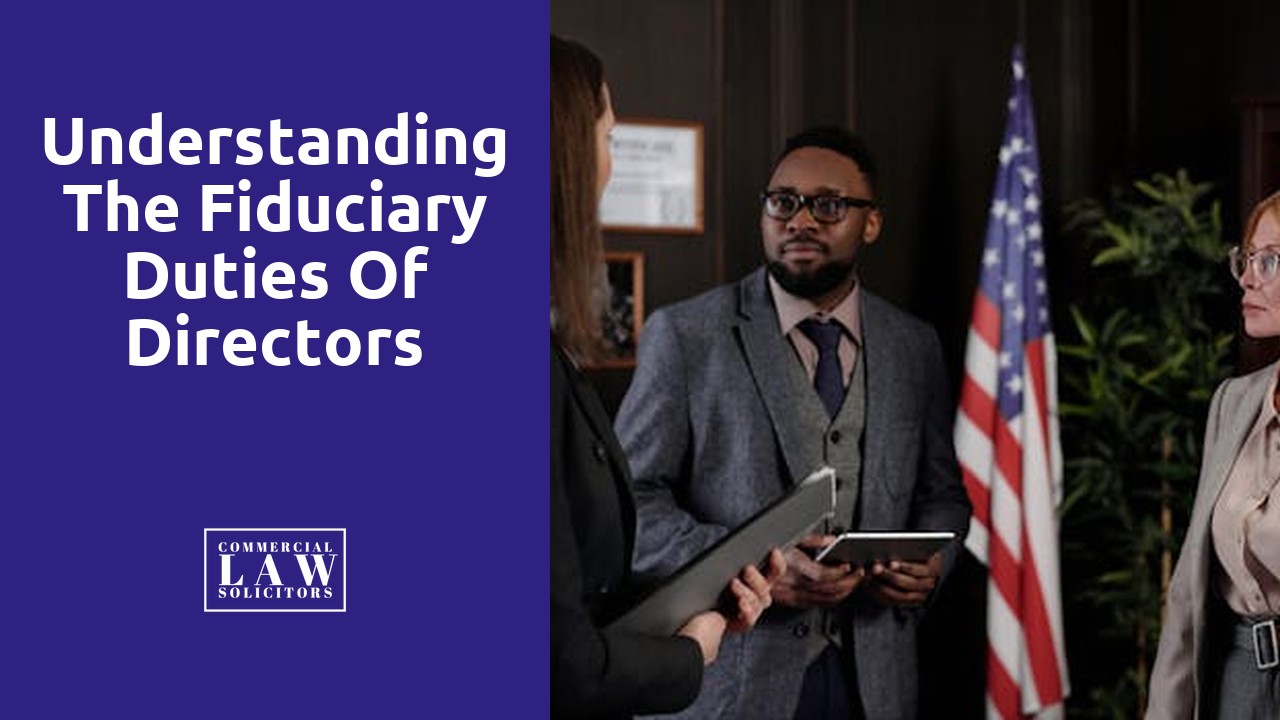
During turbulent times, corporate leaders must also prioritize the well-being and protection of their stakeholders. This includes not only their employees, but also customers, suppliers, shareholders, and the bOne of the primary legal obligations of corporate leaders is to comply with laws and regulations. This requires staying up-to-date on relevant legislation, understanding how it applies to the company, and ensuring that all operations and practices are in accordance with the law. By doing so, leaders mitigate the risk of legal consequences and demonstrate their commitment to ethical and responsible business conduct.roader community. Leaders should proactively assess potential risks and take decisive actions to mitigate them. By implementing thorough crisis management plans, leaders can minimize the negative impact on stakeholders and position their organizations for a faster recovery. They should also be prepared to make tough decisions, such as cost-cutting measures and reallocating resources, in order to ensure the long-term viability of the company. By putting the interests of stakeholders at the forefront, leaders can instill confidence and maintain strong relationships even in the most challenging times.
Navigating the Responsibilities of DirectorsProtecting Stakeholders in Times of Crisis
One of the key responsibilities of company executives is to lead by example. They need to demonstrate ethical conduct in their own actions and decisions, creating a model for others to follow. By acting with transparency, honesty, and fairness, executives can inspire trust among employees, shareholders, and other stakeholders. Moreover, they should foster an environment where employees feel comfortable speaking up about ethical concerns, and ensure that appropriate channels are in place to address such issues.
Understanding Legal Obligations in Times of Financial DistressThe Key Duties of Directors Explained
The key duties of directors can be seen as the backbone of corporate governance. These obligations are not to be taken lightly, requiring directors to consistently act in the best interests of the company and its shareholders. One of the main responsibilities is the duty of care, which demands that directors exercise a reasonable level of skill, diligence, and competence in their decision-making. This means staying informed about the company's affairs, asking questions when necessary, and making informed judgments that are based on a reasonable standard.Underst
hat could harm the company or its reputation. They should take into account the interests of various stakeholders, including shareholders, employees, customers, and the wider community. Ultimately, directors play a pivotal role in ensuring that the company operates ethically and in compliance with the law, safeguarding the interests of all those involved.
Safeguarding Shareholders' Interests: The Director's DutyIn times of financial distress, corporate leaders must navigate complex legal obligations to ensure the protection of stakeholders. One of the key legal obligations faced by organizations is the duty to act in good faith and in the best interest of the company and its stakeholders. This duty requires corporate leaders to make informed decisions and exercise reasonable care, skill, and diligence when managing the affairs of the company.
Directors of corporations have a fundamental duty to safeguard the interests of shareholders. This duty stems from the principle that shareholders are the owners of the company and have entrusted their investment to the directors to maximize returns and protect their assets. Directors must act in good faith and with due diligence, always considering the best interests of shareholders in their decision-making processes.Moreover, in times of financial distress, directors are also obligated to consider the interests of creditors. This involves monitoring the financial position of the company and taking appropriate steps to minimize losses and maximize shareholder value. Directors must be mindful of their fiduciary duty to act honestly, in good faith, and in the best interests of the company as a whole, while considering the rights of all stakeholders, including creditors. Failure to meet these legal obligations could result in legal consequences and potential liability for corporate leaders.
One of the primary ways directors fulfill their duty to safeguard shareholders' interests is by enhancing the company's profitability and generating long-term value. This includes implementing effective governance structures and policies to ensure transparency and accountability. Directors must also assess and manage risks to minimize potential losses and protect shareholders' investments. By actively monitoring the company's financial performance and making informed decisions, directors play a critical role in safeguarding shareholders' interests and promoting the overall success of the organization.Given the complex legal landscape during times of financial distress, corporate leaders should seek guidance from legal experts and remain vigilant in fulfilling their legal obligations. By staying abreast of legal requirements and promptly addressing any legal concerns, leaders can mitigate risks and protect both the company and its stakeholders. In the next section, we will explore strategies to effectively manage corporate challenges and maintain legal compliance in times of financial distress.
Related LinksAnother critical strategy for managing corporate challenges is to maintain open lines of communication with stakeholders. This includes employees, investors, customers, and suppliers. Transparent and honest communication fosters trust and can help mitigate potential damage during challenging times. Leaders should be proactive in sharing updates, addressing concerns, and seeking input from stakeholders. By involving them in the decision-making process and creating a collaborative environment, leaders can gain valuable insights and build stronger relationships that can withstand times of turmoil.
Legal Obligations of Directors in Corporate GovernanceOverview of Director's Duties and Responsibilities in Corporate Law
Corporate Insolvency and Director's Duties during Financial DistressRelated Links
Director's Duties in Management of Company Assets and ResourcesDirector's Duties in Management of Company Assets and Resources
Directors' Liability and Protection under Corporate LawOverview of Director's Duties and Responsibilities in Corporate Law
Directors' Liability and Protection under Corporate Law